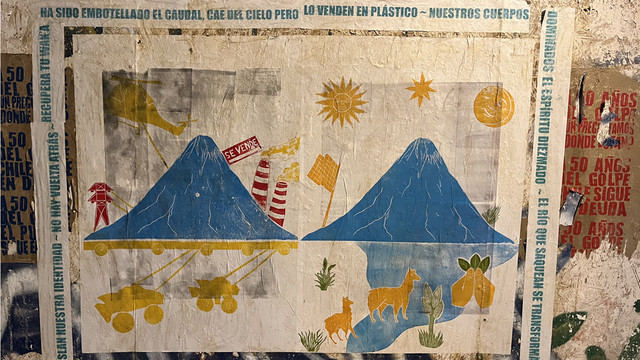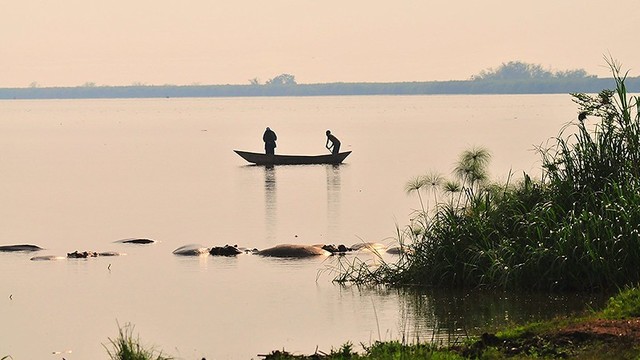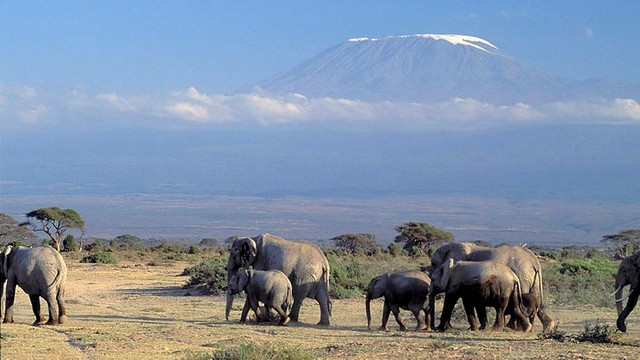Connecting the dots: Sharing knowledge to build climate resilient green economies
People who work on climate change policy often receive too much information, or struggle to access the right knowledge, in the right format, when they need it. Two kinds of organisations can help.


An Ethiopian farmer demonstrates the the impact of rain shortage on his maize crop (Photo: Dagnachew Belachew via Creative Commons http://creativecommons.org/licenses/by/2.0/)
Climate change policymakers need to be able to find information that matters quickly, so they can use the most up-to-date knowledge on climate resilient planning to develop policies. When they enter the uncharted waters of bringing together policies and plans aimed at building climate resilience with those promoting green economic growth things become even more complex.
This is the challenge facing many Ethiopian policymakers. The country has launched ambitious plans to become a climate resilient green economy, setting 2025 as its deadline.
New policies, new challenges
Policymakers developing the draft of Ethiopia's Climate Resilience Agricultural Strategy need to ensure that it's in line with broader objectives around developing a green economy while also reducing climate vulnerability. Ethiopia also has a number of flagship initiatives that seek to bring together the green economy with reducing vulnerability, such as a programme on improved cookstoves.
These parallel objectives involve government ministries that have traditionally acted in relative isolation, as well as a diverse range of other stakeholders in the public and private sectors. Building a climate resilient green economy is a new policy area for Ethiopia and many other countries, and so it is important that new information and policy ideas are able to move easily between sectors to build common understanding and generate support for the evolving agenda.
We studied social networks in Ethiopia as part of a wider project on low climate-resilient development in Africa and Asia. We found that informal networks and colleagues are an important source of information for policymakers and that two key kinds of organisations can smooth the way: information hubs and connectors.
Hubs and connectors
Hubs and connectors play crucial roles in ensuring that policymakers can access and use information.
A hub is an organisation that gives out most of the information and knowledge on a given issue. They are easily accessible to others, recognised as credible information sources and provide the information in a useful way. A coordinating ministry, such as the Ministry of Environment, or a strong research organisation embedded in government processes, could both act as hubs.
Connectors bring together groups who would otherwise not connect and act as bridges to help organisations share information. Connectors hold a lot of the information, and disseminate it easily to their wide social networks. Examples of potential connectors include a strong line ministry with lots of technical information, technical consultants supporting the development of a plan, or an international organisation.
Hubs and connectors play a significant role in affecting how knowledge flows between different policy areas so it's important that they are sustained in the long term.
Looking to the future
Our research also revealed some potential ways forward to develop and support hubs and connectors in Ethiopia and elsewhere.
When comparing climate resilience and green economy policy making in Ethiopia, we found that networks were less well established within the area of climate resilience, and that more information was concentrated in the hubs on the green economy. This is probably due to the more recent emergence of climate resilient policy development. Given their important role for policymakers, it also shows the importance of investing in developing these social networks to enable new information to support the implementation of Ethiopia's climate resilient green economy.
Organisations or technical consultants playing the role of a hub or a connector may only be working for limited time periods in Ethiopia. In this case the function needs to be supported and institutionalised elsewhere over the medium to long-term, or there is a risk that this function will be lost.
Those organisations or individuals performing hub or connector roles are not always those who have the institutional responsibility for delivering results. Those people with the institutional role need to be supported to take up those functions over time.
Many other countries around the world are developing their policy responses to climate change. We hope this framework can help them look at their own organisations and networks to ensure information flows smoothly to those who need it. It is also important to recognise that the selection of knowledge and technical input for policy making is an important part of the political economy of climate resilient planning.



